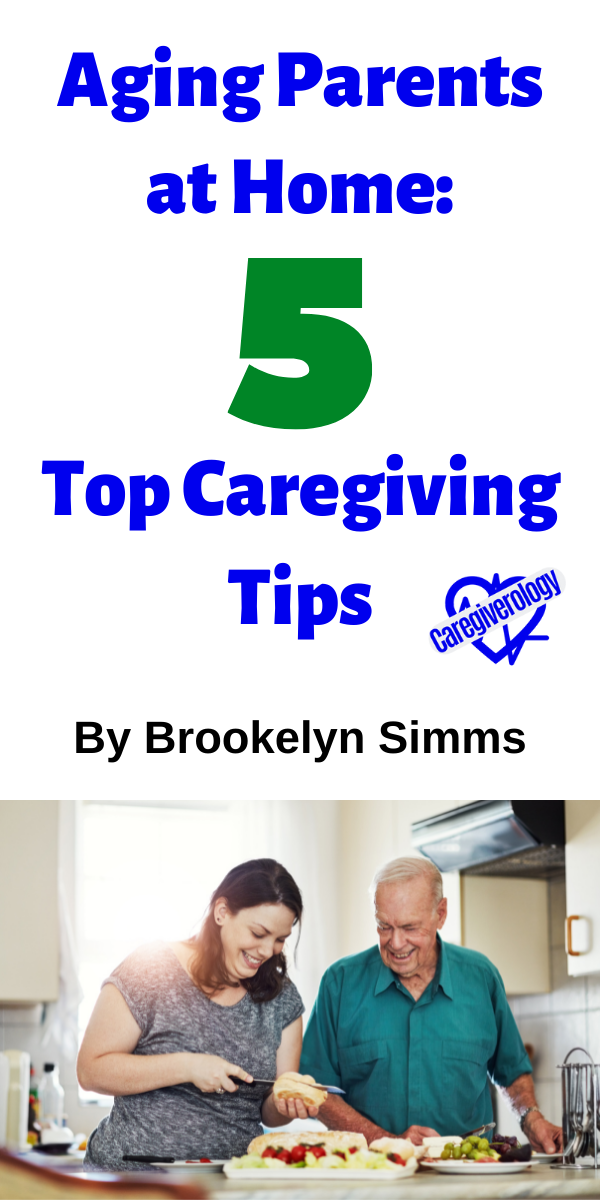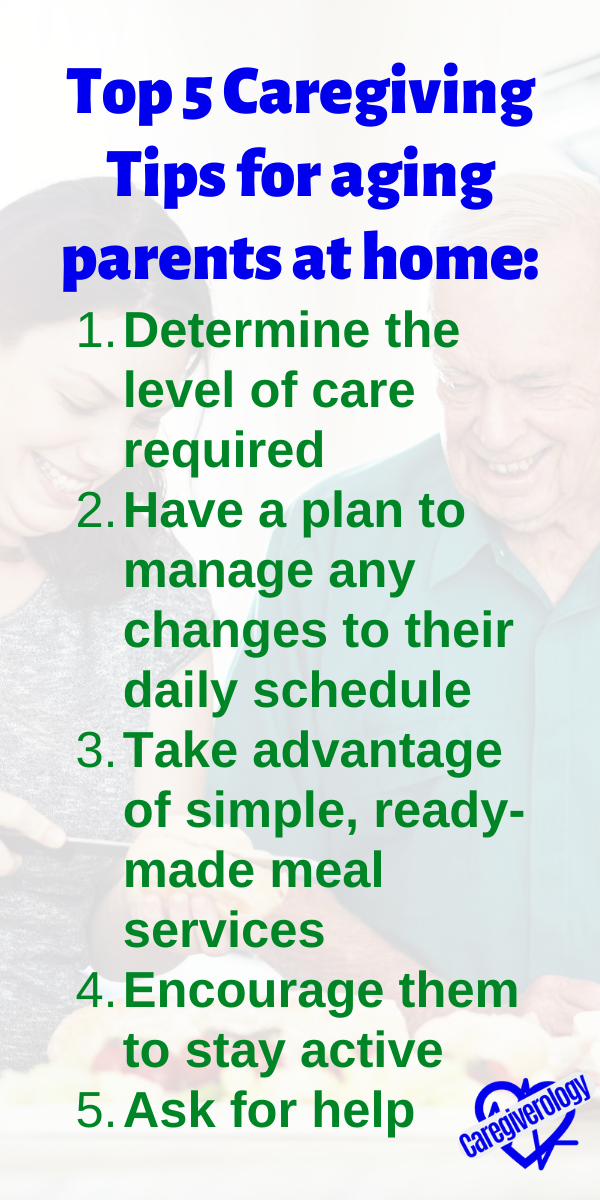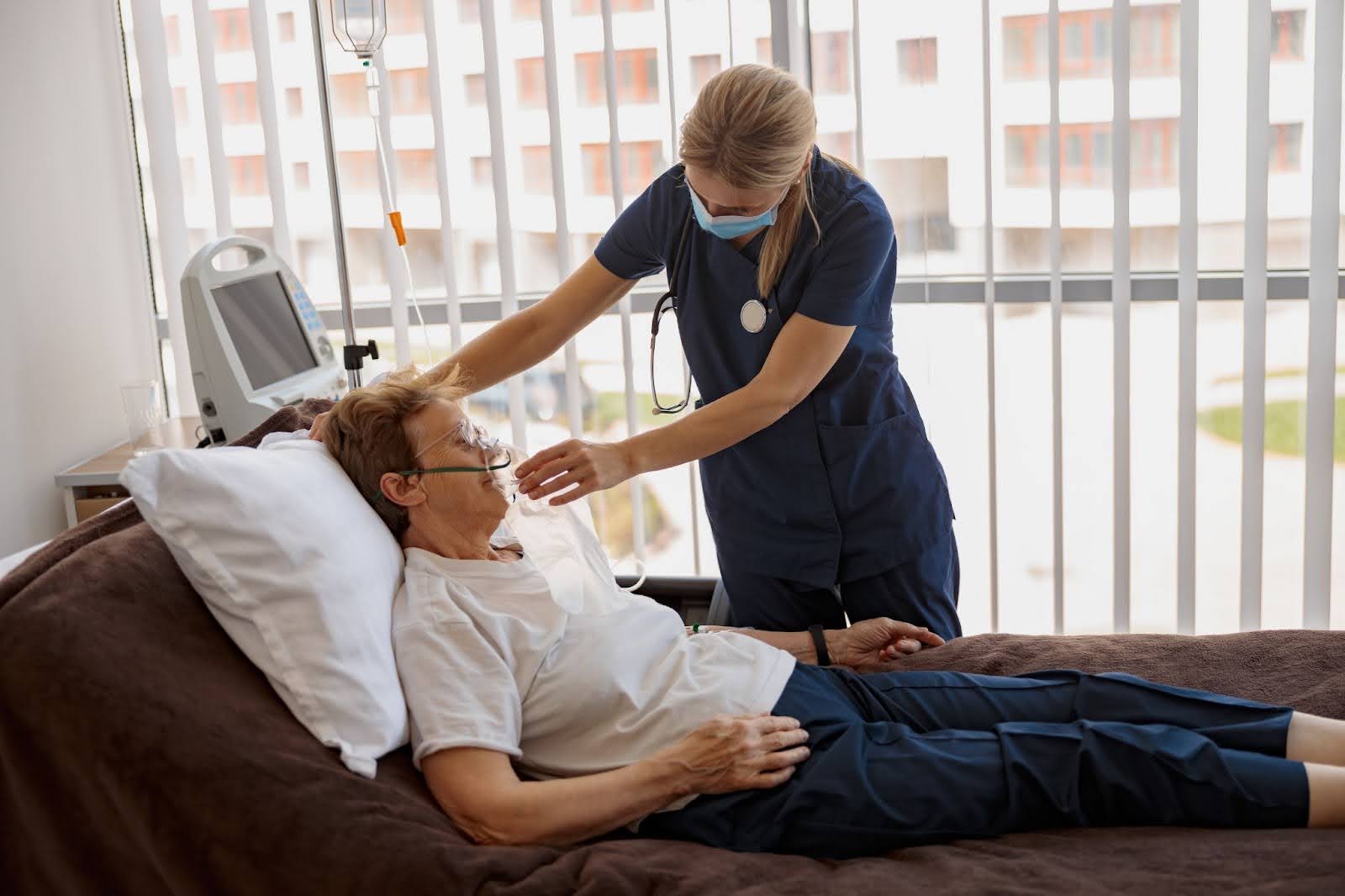Aging Parents at Home: 5 Top Caregiving Tips
Aging can be frightening. Seniors are typically afraid of the unknown. They are afraid of losing their independence and the effects of their conditions. This concern may be one of the reasons why many seniors are hesitant to seek help. They are even secretive about any new symptoms they develop. Research says that seniors prefer to live in the places they have always known.
When your parents need help, close family members usually step forward. In reality, they are by far the most important provider of "long-term care support and services." So, the question is, how can we take care of our aging mom and dad?
Caring for elderly parents can be exhausting. Caregiving isn't something you apply for; it's something that happens in the blink of an eye. It might feel like being on a roller coaster with all the ups and downs. It is even more complicated when we have no prior experience and have no idea what to do.
Taking Care of an Elderly Parent at Home:
Some of us face the task of caring for an aging parent around the time they enter retirement and will be concerned about how to maintain things in order and organized around the house.
Providing in-home care for an ill or weak parent could occur at any time in your life. Here are some caregiving tips for your aging parents:
1. Determine the level of care required
Caring for aging parents at home is not as easy as making a monthly or daily phone call to check in on them. It would be best to examine every tidbit of information about their health. You must check their physical status and determine how well your parents are doing.
The first (and most crucial step) is determining how much help an elderly parent requires. Take care not to take on too much responsibility too soon. It is a quick way to feel overwhelmed, and you may lose sight of the broader picture or neglect your health as a result.
Make a list of daily, weekly, and monthly responsibilities to figure out what kind of care they need. It will also show how much help they need throughout the day, at night, and on weekends.
Keep a notepad accessible. Make a detailed list whenever your aging parent needs help with a particular chore. After a week, you should have a clear picture of the level of care required.
2. Have a plan to manage any changes to their daily schedule
Consider their daily activities and how their abilities may change. It will help your parents in remaining independent as they age.
The following are examples of daily activities:
- Eating
- Bathing
- Dressing
- The ability to move forward
You may need to redesign your home to make their bathing, dressing, and mobility easier. You should complete these renovations as quickly as possible.
Remember, the bathroom is a hazardous environment. It is where falls are most likely to happen! You can assist keep your parents safe by doing the following:
- Professional installation of railings
- Assure that your parents have non-slip bath mats.
- Using a shower chair and a handheld showerhead.
- Adding a raised toilet seat or frame to your toilet.
Take a peek at the universal design concepts as well. You can help your parent's independence by making specific home design improvements.
3. Take Advantage of Simple, Ready-Made Meal Services
It's no secret that seniors' dietary needs are critical. Due to a lack of appetite, melancholy, and other causes, many seniors are in danger of malnutrition.
Shopping for food and preparing each meal from scratch can be time-consuming. So take advantage of local meal delivery services that are tasty and affordable. Supply your kitchen with ready-to-eat meals. It will ensure that your elderly parent does not miss meals and receive the nutrition they need.
Regular access to wholesome, nutritional meals can improve their general health. Also, ready-made meal service will relieve some of your stress.
4. Encourage your parents to stay active
Your parents' best plan for aging in place is to stay physically strong and mobile. Regular exercise helps older folks keep their bones, joints, and muscles strong. Exercise can help you avoid falling and speed up your healing time if you're sick or injured.
Physical activity also aids with the following:
- Reducing memory issues.
- Treating depression.
- Helping to minimize the risk of dementia and mental degeneration.
Discuss how your parents like staying active. Encourage children to think beyond the box by offering things they can do at home, such as:
- Using video chat to connect with grandchildren for a game of Simon Says
- Online exercise class
- Dance videos on YouTube
Ask a professional home caregiver to set up a high-quality workout regimen that they can do at home. Also check out these wheelchair seated exercises and resistance band exercises.
5. Ask for Help
Setting up a support group is essential for successful aging at home. Family, friends, and neighbors, as well as the local community, can all help. Home care services can assist you in filling in the gaps in your support system.
The people closest to us are the most valuable source of help. They are the people we can turn to in a crisis and who you can contact when you need help. Involve the entire immediate family. Ask a member to provide respite care on specific days or times of the year. They can also try to fund professional in-home care providers as needed. Or you can have someone come to clean the house, etc. If you try to do everything on your own, you'll exhaust yourself.
Conclusion
Taking care of your elderly parents is a labor of love. Even if you have more time to devote to your parents, you'll certainly need help and resources.
Follow this list of five recommendations for caring for elderly parents at home. It should serve as a starting point for you and your parents to establish harmony in your lives.
Lastly, don't forget to look after yourself as well. Putting oneself first before caring for others is the most important thing. Who will look after your loved ones if your health fails?
Thank you Brookelyn Simms for contributing this article.
Guest Articles Written for Caregiverology
From Aging Parents at Home: 5 Top Caregiving Tips to Home
Recent Articles
-
How to Plan for Aging: Financial, Health, and Lifestyle Considerations
Mar 29, 25 12:40 PM
Did you know that 70% of people over 65 will need some form of long-term care? Yet, many delay planning until it’s too late. Aging is inevitable, but how we experience it depends on preparation. -
Speech Disorders: How to Know When It's Time to See a Professional
Mar 27, 25 07:05 AM
When it comes to human interaction, we need to be able to communicate effectively. -
Who Provides What? The Distinct Duties of Nurses and Caregivers
Mar 26, 25 07:37 PM
When it comes to healthcare, the roles of nurses and caregivers are often misunderstood. While both are essential in providing support and care, their responsibilities, training, and the level of care…






New! Comments
Have something to say about what you just read? Leave a comment in the box below.